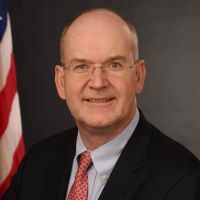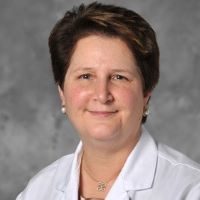Featured Speakers

Shantanu Agrawal, MD, MPhil
President and CEO, National Quality Forum
Shantanu Agrawal, MD, MPhil, is president and CEO of the National Quality Forum (NQF). A board-certified emergency medicine physician who has worked in both academic and community settings, Dr. Agrawal is the former deputy administrator for the Centers for Medicare & Medicaid Services (CMS) and director of one of its largest centers, the Center for Program Integrity (CPI). At CMS, Dr. Agrawal led an effort to improve the physician experience with Medicare by working to minimize the administrative tasks with which doctors contend. His main focus at CPI was improving healthcare value by lowering the cost of care through the detection and prevention of waste, abuse, and fraud in the Medicare and Medicaid programs. From 2012 through 2014, CPI's prevention efforts saved Medicare and Medicaid $42 million.

Helen Burstin, MD, MPH
Executive Vice President and Chief Executive Officer, Council of Medical Specialty Societies
Helen Burstin, MD, MPH, FACP is the Executive Vice President and Chief Executive Officer of the Council of Medical Specialty Societies (CMSS). CMSS and its 43-member societies represent almost 800,000 U.S. physician members. CMSS member societies collaborate to enhance the quality of care delivered in the U.S. healthcare system and to improve the health of the public. Dr. Burstin formerly served as Chief Scientific Officer of the National Quality Forum (NQF). Prior to joining NQF, Dr. Burstin was the Director of the Center for Primary Care, Prevention, and Clinical Partnerships at the Agency for Healthcare Research and Quality (AHRQ). Prior to joining AHRQ, Dr. Burstin was Director of Quality Measurement at Brigham and Women’s Hospital and Assistant Professor at Harvard Medical School.

Michael Howell, MD, MPH
Chief Clinical Strategist and Principal Scientist, Google
Michael Howell, MD, MPH, is a healthcare delivery scientist with a particular focus on patient safety, quality of care, and healthcare operations. A pulmonary/critical care physician, he was previously Chief Quality Officer at the University of Chicago Medicine, where he also directed the Center for Healthcare Delivery Science and Innovation. He has served on national advisory panels for the CDC, Medicare, and others, and on the National Academy of Medicine's AI and Machine Learning in Healthcare Working Group. His more than 100 research articles, editorials, and book chapters have been cited more than 5,000 times and incorporated into national guidelines. These studies have also held an interest for the public and have been covered by the New York Times, Wall Street Journal, Forbes, CNN, and Consumer Reports.

Mark McClellan, MD, PhD
Director and Robert J. Margolis, M.D., Professor of Business, Medicine and Health Policy, Margolis Center for Health Policy, Duke University
Mark McClellan, MD, PhD, is Director and Robert J. Margolis, M.D., Professor of Business, Medicine and Health Policy at the Margolis Center for Health Policy at Duke University. He is a physician-economist who focuses on quality and value in health care, including payment reform, real-world evidence and more effective drug and device innovation. He is former administrator of the Centers for Medicare & Medicaid Services and former commissioner of the U.S. Food and Drug Administration, where he developed and implemented major reforms in health policy. He is an independent director on the boards of Johnson & Johnson, Cigna, Alignment Health Care and Seer, and is co-chair of the Accountable Care Learning Collaborative and the Guiding Committee for the Health Care Payment Learning and Action Network.

David Newman-Toker, MD, PhD
Professor of Neurology, Johns Hopkins Medicine; President, Society to Improve Diagnosis in Medicine
David Newman-Toker, MD, PhD, is Professor of Neurology and Otolaryngology at the Johns Hopkins University School of Medicine. Dr. Newman-Toker’s clinical interest is in the diagnosis of acute disorders affecting the brainstem and cranial nerves, including stroke. His research mission is to achieve better outcomes through better diagnosis. He has published more than 100 peer-reviewed journal articles and given more than 200 invited lectures, most on diagnosis of dizziness and diagnostic errors. He chaired the Diagnostic Error in Medicine Annual International Conferences in 2010, 2011, and 2012 and previously served as Chair of the SIDM Research Committee as well as the SIDM Policy Committee. Dr. Newman-Toker is the current President and Board Chair of the Society to Improve Diagnosis in Medicine.

Danielle Ofri, MD, PhD
Author and New York Times columnist, Bellevue Hospital/NYU
Danielle Ofri, MD, PhD, is an internist at the medical clinic of Bellevue Hospital, the oldest public hospital in the country. She is a founder and Editor-in-Chief of the Bellevue Literary Review, and is on the faculty of New York University School of Medicine. Her newest book, What Patients Say; What Doctors Hear, is an exploration of doctor-patient communication and how refocusing the conversation between doctors and patients can improve health outcomes. She has written four other books on life in medicine, and she was the editor of a medical textbook—”The Bellevue Guide to Outpatient Medicine”— which won a Best Medical Textbook award. She is currently writing a book about medical error.

Carla Pugh, MD, PhD, FACS
Professor of Surgery and Director of the Technology Enabled Clinical Improvement (T.E.C.I.) Center, Stanford Medicine
Carla Pugh, MD, PhD, is a Professor of Surgery at Stanford University School of Medicine. She is also Director of the Technology Enabled Clinical Improvement (T.E.C.I.) Center. Her clinical area of expertise is Acute Care Surgery. Dr. Pugh obtained her undergraduate degree at U.C. Berkeley in Neurobiology and her medical degree at Howard University School of Medicine. Upon completion of her surgical training at Howard University Hospital, she went to Stanford University and obtained a PhD in Education, making her the first surgeon in the United States to receive this degree. Her goal is to use technology to change the face of medical and surgical education.

Don Rucker, MD
National Coordinator for Health Information Technology, U.S. Department of Health and Human Services
Don Rucker, MD, is the National Coordinator for Health Information Technology at the U.S. Department of Health and Human Services, where he leads the formulation of the federal health IT strategy and coordinates federal health IT policies, standards, programs, and investments. Dr. Rucker has three decades of clinical and informatics experience. He started his informatics career at Datamedic Corporation, where he co-developed the world’s first Microsoft Windows-based electronic medical record. He then spent over a decade serving as Chief Medical Officer at Siemens Healthcare USA.

Michelle Schreiber, MD
Director for the Quality Measurement and Value- Based Incentives Group, The Centers for Medicare & Medicaid Services (CMS)
Michelle Schreiber, MD, is the Director for the Quality Measurement and Value-Based Incentives Group. She oversees a $300 million budget and leads the quality and value-based purchasing programs across care settings for the group. Dr. Schreiber is a general internal medicine physician with over 25 years of healthcare experience. Most recently, she was the Senior Vice President and Chief Quality Officer of the Malcom Baldrige award winning Henry Ford Health System (HFHS) in Detroit, Michigan. Prior roles at HFHS included the SVP of Clinical Transformation and IT Integration, where she was the clinical lead of the system Epic implementation, the Associate Chief Medical Officer of Henry Ford Hospital for quality and utilization management, and the Division Head of General Internal Medicine. She has also held senior leadership roles at the Detroit Medical Center, where she was the Chief Quality Officer.
Register for DEM2019
Join featured speakers including Shantanu Agrawal, Michael Howell, and Danielle Ofri for thought-provoking and motivating presentations on improving diagnostic quality and safety.
Sessions at DEM2019
Experience plenary sessions and concurrent workshops that engage physicians, nurses, patients, and organizational and safety leaders in developing collaborative solutions for improving diagnosis.
